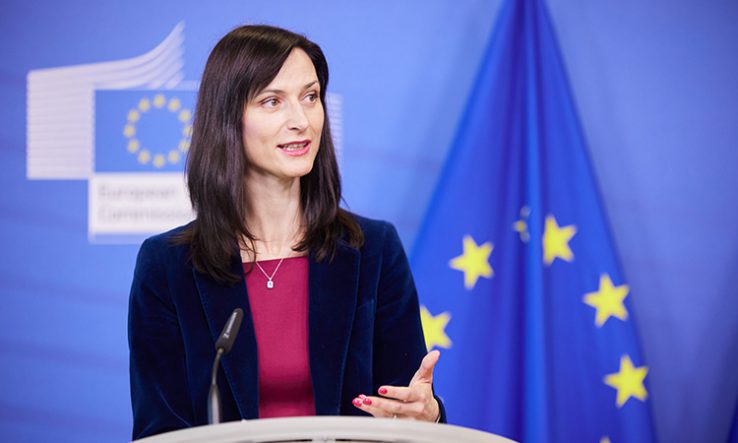
Image: Claudio Centonze, European Union 2021
EU strategy needs “rethinking” in light of changes in innovation, says R&D commissioner
The EU’s research and innovation commissioner Mariya Gabriel has outlined her vision for creating a European Innovation Area—a policy package intended to boost innovation in the bloc, akin to those that form the long-standing European Research Area and European Education Area.
At the networking conference of the member association Universities of Applied Sciences for Europe on 11 May, Gabriel provided more details on how she sees the EIA shaping up, having raised expectations around the creation of such an initiative via brief references in recent months. While she was tasked with renewing the ERA and EEA by the European Commission president, setting up an EIA appears to be an undertaking of Gabriel’s own.
Gabriel placed the EIA in the context of “challenges such as climate change and digital transformation, but also ongoing changes in the dynamics of innovation”. Expanding on these changes, she said that innovation in the digital age has “new features; for example, multiple technologies and disciplines are coming together to enable a deep-tech wave that is accelerating the speed of innovation”.
“We have also observed that there are new innovation sources that are not necessarily research-based,” Gabriel added. She said there is a need for “rethinking” the EU’s innovation strategy “bringing in these new elements, and aiming for change with regards to old debates”.
The EIA should “be an enabler of the new transformative innovation policy and respond to the need for a more holistic policy approach to innovation, to build more interconnected ecosystems”, Gabriel said. The EU needs to encourage synergies between policies and funds, and “accelerate the transformation of our educational institutions”, she added.
“We need a truly interconnected innovation ecosystem [to] foster applied sciences-industry cooperation, focus on new European champions, and support infrastructures for testing and experimenting solutions,” the commissioner said. In a nod to her audience, she said that universities of applied sciences would make an “essential” contribution.